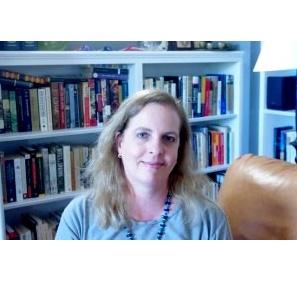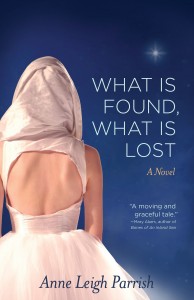Getting In
 As Heidi Klum says on Project Runway, either you’re in, or your out. The world of publishing works this way, too. There are barriers and hurdles to get over, doors to walk through, people who welcome you, and those who turn their backs.
As Heidi Klum says on Project Runway, either you’re in, or your out. The world of publishing works this way, too. There are barriers and hurdles to get over, doors to walk through, people who welcome you, and those who turn their backs.
This is the story of how I got in, and why some say I’m still out.
Most of my career has been spent as a short story writer. I sent my first story out for consideration in 1986. Back then there was no internet, no online publishing presence, no e-books.
The market for short fiction was divided into the “big” magazines, those with a national circulation like The New Yorker, The Atlantic Monthly, Redbook, and Harper’s; and the small presses or little magazines, some of which like the Paris Review had been around for a while and had really solid reputations.
Many were run by university English departments, and as such showed a strong inclination to publish work written by their own faculty, colleagues at other universities, and students in their MFA programs. I didn’t have an MFA, and I wasn’t a professor, and so was out on that basis (and that my work wasn’t good enough, yet).
Most of my rejections were pre-printed on tiny slips of paper. But some were hand-written notes from the editor herself. I was told where my story succeeded, where it failed, or why it couldn’t be included in their journal, quite often because they’d recent published a piece that was similar to mine. A couple of those notes came from The New Yorker, but the author remained anonymous.
These personal notes proved that although I wasn’t quite there, I was just outside the door. Then my first offer of publication came, from the Virginia Quarterly Review, a little magazine, but a very high quality one! Finally, I was in.
With the rise of online literary magazines, two things happened. The response time to my submissions was greatly reduced, and when a story was accepted and published, my readership increased. The little magazines were indeed little, often with a circulation of fewer than two thousand subscribers. The online venues reached a lot more people, which was a very good thing. I published quite a number of stories online, and was very glad to do so.
But some people said these venues weren’t really legit because they didn’t pay authors for their work. The quality of the writing there came under suspicion, too. Yet writers with lots of publication credits were appearing alongside the first-timers and the barely-theres. The journal, Eclectica, is a case in point. It’s been around since 1996, under the supervision of Tom Dooley. I came on board two years ago, and let me tell you, we publish very prominent people.
Then, after winning some contests and publishing close to thirty short stories, I was ready to put the best ones together and call it a collection – an actual book! Another three years went by before it was accepted by a traditional press. All The Roads That Lead From Home was my crowning achievement and the delight of my career, until my publisher began bashing me because my sales were so poor.
He even refused to look at my second story collection. What riled me is that All The Road won a silver medal in the 2012 Independent Publisher Book Awards in the short story category – beating out Steve Almond’s God Bless America, which took the bronze. So, I was in, in terms of the award and the book itself, but I was still out in terms of sales.
I found another publisher for the second book, a linked collection called Our Love Could Light The World. The publisher is She Writes Press. They’re not traditional, in that they ask the author to pay publication costs. In return, the author keep between 70% and 80% of the royalties, depending on whether the sale is print or electronic, as compared to the typical 15%.
They are traditional because they don’t take all comers. You have to have a good book to get in. Another difference between SWP and my first, traditional publisher, is that I had complete control of the choice of cover design. This was huge. The first time around, I was given a cover image and told, “here you go!” I wasn’t wild about it, but there was no room for discussion.
 Now I’ve got a novel coming out next month – my first! SWP is my publisher once more. I’m thrilled, over the moon, and well, you get the picture. I went recently to my profile page on Poets & Writers, wanting to update my directory listing with my two SWP titles. I received an automated message back saying that SWP wasn’t on their approved list of publishers. Hm. I’m out, again? I wrote P&W asking that SWP be added. It’s a vetted press, we’re distributed through Ingram.
Now I’ve got a novel coming out next month – my first! SWP is my publisher once more. I’m thrilled, over the moon, and well, you get the picture. I went recently to my profile page on Poets & Writers, wanting to update my directory listing with my two SWP titles. I received an automated message back saying that SWP wasn’t on their approved list of publishers. Hm. I’m out, again? I wrote P&W asking that SWP be added. It’s a vetted press, we’re distributed through Ingram.
What more does anyone want when deciding if we’re in or not? Some places, like NewPages.com, won’t list SWP titles in their new books category because the author pays for production cost. When I published traditionally the first time around, I had to pay all of my own promotional and marketing expenses, and that was okay, but paying for the book itself wasn’t?
The publishing landscape is in flux these days, but one thing is the same – there are people in that world who want to be able to go on saying, no matter what, that I – and countless others, no doubt – are still out.
Doesn’t matter, really. I know I’ve finally passed through the gate.
—
Anne Leigh Parrish’s debut novel, What Is Found, What Is Lost, came out this October from She Writes Press. Her second story collection, Our Love Could Light The World (She Writes Press, 2013) was a finalist in both the International Book Awards and the Best Book Awards. Her first collection, All The Roads That Lead From Home (Press 53, 2011) won a silver medal in the 2012 Independent Publisher Book Awards. She is the fiction editor for the online literary magazine, Eclectica. She lives in Seattle.
Find out more about Anne on her website www.anneleighparrish.com
Follow her on Twitter: @AnneLParrish
Facebook: https://www.facebook.com/AnneLeighParrish
Buy What Is Found, What Is Lost Here
Category: Contemporary Women Writers, On Publishing
Comments (8)
Trackback URL | Comments RSS Feed
Sites That Link to this Post
- The Monday Post: Links for Readers and Writers | A Vase of Wildflowers | December 15, 2014
























Hello, Congratulations on your new novel, it is a huge achievement. My story is similar in that I messed around with the traditional route for two years – hoping to get an agent – then a publisher – gave up when I discovered the type of book I was writing – obsessive love – was being flooded onto the marketplace – some using similar character names as mine even… I published my book on Kindle – Second Life Losing You Saving Me by MC Browne on 5th Feb 2015 … The pre proofed copy … To ensure my novel was out there and seen – and read and enjoyed – rather than sit in a drawer wondering if I could have competed with the mammoth giants in publishing.interesting that three days later I got a solicitors letter saying they had an issue with the back of my book copy … As it was similar to the very unique marketing campaign of one of their star authors … I did wonder … If two years of my life had been wasted chasing company’s whose biggest USP was a few lines of text so original that I wrote them two years ago and sent them out to agents. so I removed my book for sale – changed the wording to the exact words as sent out years ago ( which sound and look the same ) and replaced it back on Amazon yesterday. I think you are doing exactly the right thing . This whole experience has shown me traditional publishing needs to either hire some real creativity – or lose more market share – to us. have a look at my website if you get a minute . My paperback comes out next month … I am doing it & it feels great… I’m guessing you already know that x
Thank you so much for sharing and congratulations on your debut novel (and all your other stories)! I so agree with your sentiment about the publishing industry being in flux but “gatekeepers” always existing. I think the most important thing is to move forward and find the right venue for our words and persevere in our quest to have our stories heard. You are a shining example of this.
This is wonderful, Anne. My prediction is that Poets and Writers will come around soon. (Publishers’ Weekly only recently changed our status after seeing how finely written and beautifully produced our titles were.) The idea that the traditional houses are “curating” and just because you choose to invest in your own work, just like visual artists, filmmakers and musicians do, means there has to be an asterisk next to it, is outdated, censorious, and wrong. The quality of the work is what matters–not what its passionate author has done to get it out into the world. I am proud to say I turned down a deal from a traditional house to publish with She Writes Press for the autonomy, better economics, and community we have. Thank you for being a trail blazer with us–we are what’s next in publishing!
Kamy Wicoff, co-founder, She Writes Press
Writers are pretty tough creatures; thanks for reminding us of that. I love how you kept finding the right outlets for your work, adapting to the changing landscape as you went along. I remember those tiny slips of papers from literary magazines (most now defunct or online rather than print) with editors’ scribbles at the bottom, and how they thrilled me! Proof that I was, like you, on the right path. Onward! as Howard Junker used to write on Zyzzyva submissions.
Great article, Anne! Thanks for sharing your struggles and triumphs. Publishing is a tough business. And, we writers, must be as tough as well. Can’t wait to read your novel!!
As a fellow She Writes Press author, I find this business about Poets & Writers super-annoying. This In vs. Out business is changing so rapidly. Anne, you have accomplished so much as a writer and I feel confident that your patience and talent WILL be rewarded!
Thanks for sharing your story, Anne. My own road to publication has been wobbly to say the least, although certainly not as long as yours! Setbacks, bad luck, bad contracts, you name it. At times, I wished I’d given up or at least never started submitting work in the first place, but I’ve learnt so much, and met many wonderful writers and supporters along the way. To have someone believe in you and your work is an amazing feeling and unbeatable. I wish you all the best with your book and future writing career!